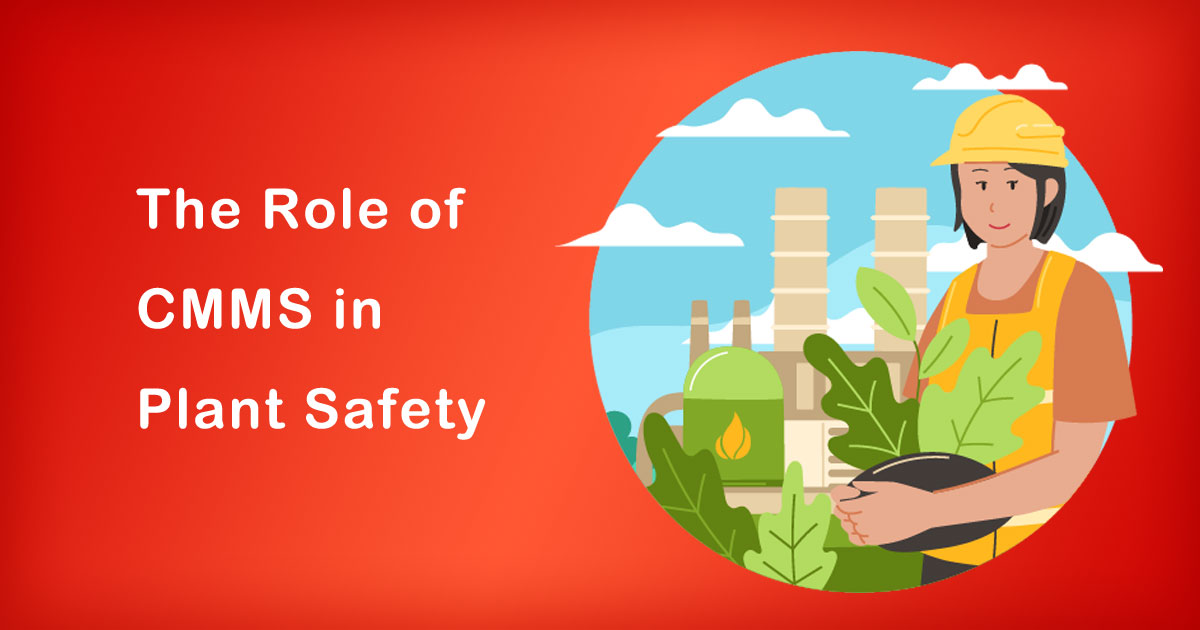Introduction
In the industrial landscape of India, safety is a critical concern for plant owners and operators. With the potential for accidents and hazardous incidents, ensuring a safe working environment is essential to protect employees and maintain productivity. In this regard, Computerized Maintenance Management Systems (CMMS) have emerged as a vital tool for enhancing plant safety. This article explores the role of CMMS in plant safety, highlighting its benefits and key features in an Indian context.
The Need for Plant Safety in India
India is home to a diverse range of industries, including manufacturing, energy, chemicals, and pharmaceuticals, which rely heavily on large-scale plants and equipment. However, the growing complexity of industrial processes also brings an increased risk of accidents and safety hazards. To prevent mishaps and ensure the well-being of workers, it is crucial to establish comprehensive safety protocols and adopt advanced technologies like CMMS.
What is CMMS?
CMMS, short for Computerized Maintenance Management System, is a software-based solution that helps organizations streamline their maintenance operations. It serves as a centralized platform to manage work orders, track equipment performance, schedule maintenance tasks, and store critical data. CMMS offers a range of features that contribute to plant safety, making it an indispensable tool for any industrial setting.
Benefits of CMMS in Plant Safety
1 Equipment Maintenance and Inspection
Regular equipment maintenance and inspection play a vital role in preventing accidents and ensuring plant safety. CMMS enables plant operators to schedule routine maintenance tasks, track equipment performance, and generate work orders automatically. By implementing a preventive maintenance strategy through CMMS, potential equipment failures can be identified and addressed proactively, reducing the risk of accidents caused by equipment malfunctions.
2 Safety Documentation and Compliance
Maintaining proper safety documentation and complying with industry regulations is a crucial aspect of plant safety. CMMS provides a centralized repository for storing safety-related documentation, such as equipment manuals, safety procedures, and compliance guidelines. It allows easy access to critical information, ensuring that employees are well-informed about safety protocols and can follow them effectively.
3 Incident Management and Reporting
In the unfortunate event of an incident or accident, CMMS can assist in managing the aftermath. By logging incident reports, capturing photographs, and documenting corrective actions, CMMS helps in thoroughly investigating the cause of the incident and implementing preventive measures. Additionally, the system provides a platform for generating comprehensive safety reports, which can be shared with relevant authorities and stakeholders to promote transparency and accountability.
Key Features of CMMS for Plant Safety
1 Asset Tracking and Management
CMMS allows for efficient tracking and management of assets within the plant. It provides a comprehensive overview of the equipment inventory, including critical details such as maintenance history, warranties, and inspection records. With this information readily available, plant operators can identify potential safety risks associated with specific assets and take appropriate measures to mitigate them.
2 Work Order Management
CMMS simplifies work order management by automating the process and ensuring timely completion of tasks. By prioritizing maintenance activities, assigning work orders to technicians, and tracking progress, CMMS enables proactive maintenance and minimizes the chances of equipment failure leading to safety incidents.
3 Mobile Accessibility
In an era of increasing digitalization, mobile accessibility has become essential for effective plant safety management. CMMS provides mobile applications that allow technicians to access real-time information, receive work orders, and record maintenance activities directly from the field. This feature enhances communication and facilitates prompt response to safety concerns, improving overall plant safety.
Case Study: Implementation of CMMS in an Indian Manufacturing Plant
To understand the practical implications of CMMS in an Indian context, let us consider a case study of a manufacturing plant. ABC Manufacturing implemented a CMMS system to streamline their maintenance operations and enhance plant safety. The plant witnessed a significant reduction in equipment downtime, an increase in preventive maintenance activities, and improved compliance with safety regulations. The adoption of CMMS resulted in a 30% decrease in safety incidents and an overall enhancement in employee safety and well-being.
Conclusion
In the Indian industrial landscape, plant safety is of paramount importance. CMMS emerges as a crucial tool for ensuring a safe working environment by facilitating equipment maintenance, safety documentation, incident management, and compliance. The benefits of CMMS, including asset tracking, work order management, and mobile accessibility, contribute to the overall improvement of plant safety. By leveraging the power of CMMS, industrial plants in India can prioritize safety, protect their workforce, and enhance productivity simultaneously.







